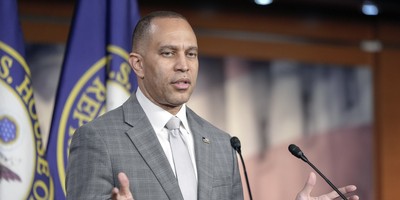Advertisement
Among other things, what caught my eye was Stupak's observation that "“This isn’t an appropriations bill where you try to get the best projects for your state.” It pointed out a truth that has been lurking in the shadows since Senator Tom Harkin minimized Nelson's (and other Democrats') sellouts, insisting that the legalized payoffs to their states is "small stuff."
There's a distinction to be made here. Obviously, people are rightly upset about the quantity of wasteful earmark spending that routinely goes into appropriations bills -- and we can only hope that the Republicans will find a way to present some meaningful reforms of that system going into next year's elections.
But there's a world of difference between trying to get a special deal for one's state -- an earmark -- inserted into an appropriations bill, and accepting special deals in exchange for supporting sweeping new legislation that will affect every American and about one-sixth of the economy.
When senators are simply running up the cost of an appropriations bill to secure goodies for the home folks, it's hardly admirable -- but unless reforms are in place, it's to be expected. That's what senators representing specific constituencies -- states -- do, especially when they're depending on that state to re-elect them.
Recommended
Advertisement
In contrast, when it comes to a matter of national magnitude like this ungodly health care bill, one expects more of senators -- that they'll act like members of a national legislature, as they are, rather than as just representatives of their own particular states. And that means they're supposed to take into account the national impact of a bill like this one, rather than simply taking a parochial (legal) bribe.
If the bill wasn't good enough for the country that it deserved a senator's support before the handout, he shouldn't be willing to support it simply in return for favors for the home-folks.

























Join the conversation as a VIP Member